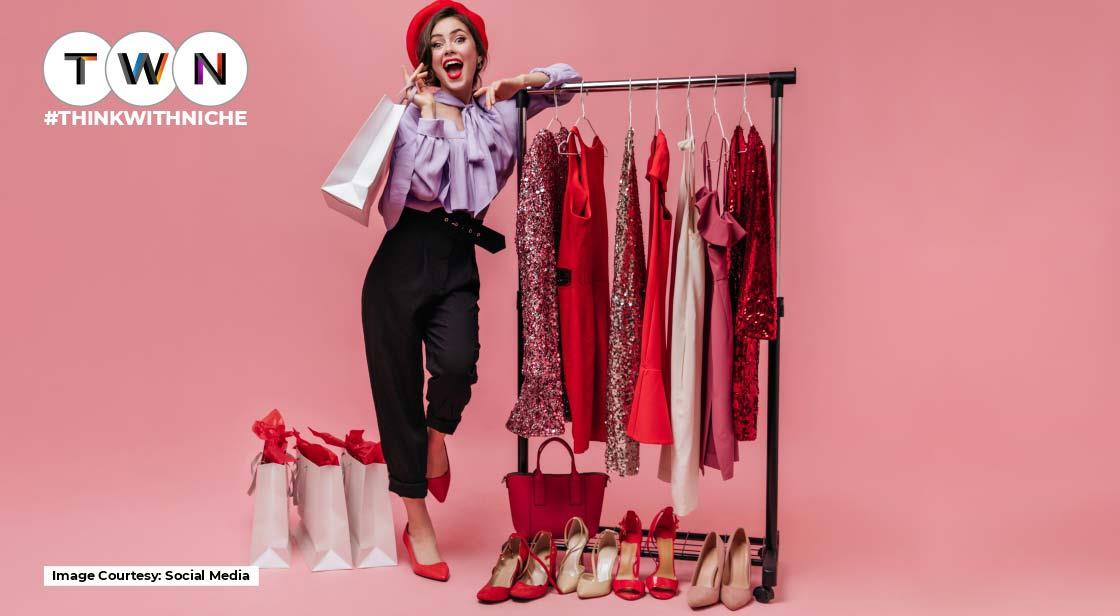8 Best Digital Fashion Marketplaces

Blog Post
Forbes reports the boom in digital asset ownership and NFTs among the younger generation. The third quarter of 2021 saw $10.7 billion in sales. This is eight times the amount recorded in the previous quarter. Individuals who are interested in the virtual world or the metaverse can also purchase digital assets.
Fashion is not just about going digital. Recent research on the environmental impact of traditional textile industries is alarming. More than 85% of all textiles end in landfills. This amounts to billions of material loss worldwide due to trends and throwaway culture. Fashion moving digital means less clothing consumption and greater immersion in virtual technologies.
The gaming industry is where digital fashion is at its most prominent. Digital fashion thrives on gaming platforms such as Roblox or Fortnite.
The trend is now being embraced by top fashion bloggers who can introduce digital fashion houses to their followers. We take a look at some of the most innovative Digital Fashion Marketplaces.
Digital Fashion Marketplaces sell digital clothes and accessories. These marketplaces function much like an eCommerce site where customers can browse the products and add them to their carts before paying for them at checkout. This is similar to what gamers have done for years: they buy skins for their avatars. But now there's more focus on what's trendy than just simple costumes. Only video games, VR platforms, or social media can use digital fashion products. These are pixels. However, they make the virtual experience more vibrant and stylish.
Top 8 Digital Fashion Marketplaces
Either digital fashion marketplaces market via a blockchain and sell NFTs or they do not. These are our top digital fashion shops:
1. DRESSX
DRESSX is a popular online fashion site that features collections by world-recognized artists such as Van Gogh and Kandinsky, Schiele and Pacsun. California-based company, founded in August 2020, showcases fashion that doesn't cause environmental damage. This site was a popular destination for digital fashion, both for gamers and those who love the metaverse.
DRESSX is a similar eCommerce site. You choose an item and send it to DRESSX. The fitting team will then use that photo to create the 3D-engineered garments. DRESSX will send you a photo of yourself wearing the item. There are more than 600 items on DRESSX. They come from both traditional fashion houses as well as digital-only brands. DRESSX also features in-house designed pieces. DRESSX offers photos that influencers could showcase as customized digital looks. These assets can be used on Instagram, which is great for drawing in the artsy crowd.
Recently, the company launched an app that allows virtual fittings with AR before you purchase an item or entire look. To facilitate a secure and permissionless transaction, DRESSX partnered with Crypto.com. We will soon have NFTs directly from DRESSX. This is a great prospect for virtual fashion collectors.
2. Replicant
Replicant is a fashion marketplace and NFT that allows customers to wear digital clothes and designers can showcase their creations. This site accepts cryptocurrency as payment. Replicant, like other digital fashion platforms, recognizes the importance of self-expression and a low carbon footprint. Digital clothing is a way for creators to express themselves in virtual worlds.
Replicant functions like an eCommerce shop. You can select an outfit and upload a picture showing the garment. Then wait 48 hours for the photo to render. You can use this virtual fashion marketplace to spice up your Insta or avatar with amazing, unique pieces. The NFT fashion marketplace has attracted more than 100,000 users worldwide.
3. Auroboros
Auroboros, a digital fashion house, works in a different way from the other marketplaces. This London-based company, which is part of Alexander McQueen's charity work, combines science and haute couture creations. Auroboros was the first brand to exhibit a digital collection during London Fashion Week. The industry received positive reactions to the collection called NatureTech. It is a new type of fashion with a more immersive experience for the consumer.
Auroboros offers couture buyers a new way to express their fashion taste and reduce the carbon footprint of physical wares. These virtual assets can be easily "preserved" and displayed by individuals via social media and gaming websites.
These designs are inspired by nature and highlight technical skill and engineering. You can purchase the 14-piece Biomimicry Collection at DRESSX and Auroboros' website.
4. DIGITALAX
DIGITALAX, a NFT-based fashion marketplace, is primarily a site for virtual products. The web3 architecture allows the company to create the first Digital Fashion Operating System. This allows the goods to be seamlessly translated into VR, AR, gaming, and other 3D environments. DIGITALAX was launched in 2020 and remains an open-source platform that encourages creators of digital fashion assets to be collected, worn, and traded within virtual communities. It is a one-stop shopping destination for all fashion NFTs. This makes it easy for designers and enthusiasts to come together.
DIGITALAX functions in the same way as other blockchain-powered fashion marketplaces. Customers can shop for different pieces and then try them on before making a purchase. The digital accessory or garment will be delivered to their door. The digital fashion marketplace is designed to make maximalist and high-end couture pieces more accessible, easier to collect, and reach a wider audience beyond the traditional social media channels.
Also Read: 8 Best Free Email Marketing Tools
5. The Dematerialized
Lukso, a blockchain specialist in digital lifestyle, launched The Dematerialised, an NFT-based fashion marketplace. This platform is focused on designer fashion products that can be purchased as NFT assets. The Dematerialised's unique approach to virtual fashion products is that it creates sustainable revenue streams. It reduces dependence on traditional fashion business models, which have become too consumption-focused and wasteful. Dematerialised is a new way to make fashion companies more transparent, creative, and equitable in their operations.
Famous brands like Karl Lagerfeld can now release their own NFT drops through the digital fashion marketplace. Through The Dematerialised platform, this brand was able to make its first foray into blockchain technology. This platform ensures that virtual goods will be authentic, valuable, rare, and unique in the market. It was designed to serve high-end customers who wish to combine couture and virtual life.
The Dematerialised released a RTFKT + THE FABRICANT NFT collection in 2021. It was called "RenaiXance", which celebrates the street culture and blurs the boundaries that still exist in gaming fashion.
6. Tribute to Brand
Tribute Brand, a digital fashion marketplace based in Croatia, is leading the charge in "contactless" and "cyber" fashion. The team recognizes that digital fashion is the future of design and that virtual worlds allow freedom of expression--regardless of size, gender, and style preference. Tribute Brand encourages people to create their own virtual identities to be more sustainable in fashion consumption. The recent COVID-19 pandemic and the subsequent events that followed it inspired its collective. This highlights the need to make systemic changes towards sustainable practices.
Tribute Brand has experts in CGI modeling, UX design, and coding. This makes it easy to have fun and enjoy modern couture pieces and fashion without the need to manufacture, ship, or dispose of physical garments.
Tribute Brand customers who purchase clothes will be able to receive CGI images of the submitted photo in which they are wearing the cyber-outfit. Processing can take up to five days. You have the option to combine multiple purchases into one image. Although the platform doesn't have an NFT gallery you will receive a digital certificate which serves as proof that you bought the product.
There is a maximum of 100 uploads for each piece, so they can only be sold after that limit has been reached. The garment will be gone once it is sold out. There are no restocks. It can also make custom orders if the customer wishes to transform a physical outfit into one that is digital.
7. XR Couture
Subham Jain founded XR Couture in 2020 to combat fashion waste via digital expression. Jain realized that the outbreak of the pandemic had a significant impact on the environment. XR Couture was also created to counter the influencers' practices. Digital fashion couture platforms can produce visually stunning content that is not exposed to the outside.
XR Couture is a well-known digital fashion marketplace. Strong collaborations with artists and designers result in outstanding designs that are accessible to audiences around the world. The virtual fashion source allows customers to submit an image, which is similar to DRESSX or other platforms. It then matches the virtual assets in the photo. It has not yet offered NFTs, but it plans to in the future.
XR Couture allows you to upload multiple photos to create an outfit. Unlike other platforms, which only allow you to order one garment per order, XR Couture allows you to create a virtual outfit in multiple colors. XR Couture's 3D experts can help you choose the right photo to match the outfit. They can also digitally test your photos and order the clothes. XR Couture is able to offer fashion to everyone because it has a lower price point than other marketplaces.
8. UNXD
UNXD, a digital fashion marketplace for high-end fashion, works in partnership with Dolce & Gabbana, one of the most prominent names in traditional fashion. Collectors who are willing to invest in digitally authenticated luxury goods will enjoy NFT drops from top brands and creators. UNXD offers couture clothing as well as art, accessories, and virtual experiences not available elsewhere. UNXD is a great example of digital fashion's success. Dolce & Gabbana's first nine-piece collection, "Collezione Genesi", was sold for $6 million dollars just weeks after it launched. This was the most successful digital fashion NFT sale to date.
Conclusion
In recent years, digital fashion marketplaces have gained popularity. Virtual expression was necessary because of the pandemic. Fashion lovers have also found a way to make their fashion more sustainable through digital platforms. Digital fashion platforms allow customers to enjoy unlimited designs without the high manufacturing, shipping, and waste costs associated with traditional fashion products.
Blockchain-powered technology is transforming fashion via digital fashion marketplaces. These platforms can bridge the gap between artistic desire and physical items. To ensure that these marketplaces can meet growing demand, it is important to use robust blockchain tech.
Traditional fashion houses will always be around, but these brands now recognize that digital is the future and present of fashion. While big brands are now joining the fray, many gamers and meta users still want to see innovative virtual-based designers and brands with great designs and affordable prices. Fashion is seamless and immersive, and all the NFT drops make it even more fun to collect couture.
You May Like
EDITOR’S CHOICE












